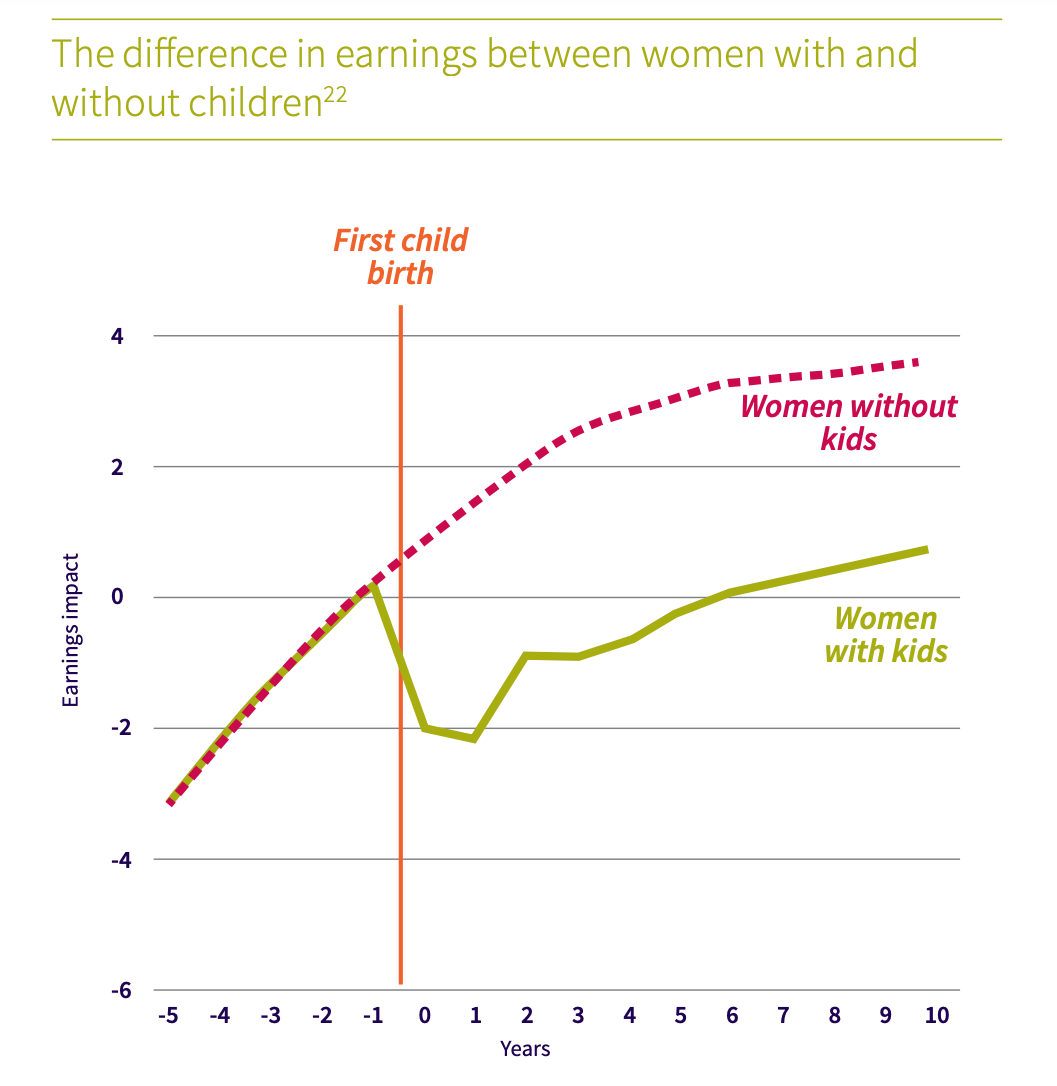Why The Portfolio Career Revolution Will Be Society's Great Equaliser
On social mobility in the digital age, gender parity in the workforce, and the rise of skills-based hiring
The inevitable disappointment of the American Dream is a theme woven throughout Steinbeck’s Of Mice and Men:
“I seen hunderds of men come by on the road an’ on the ranches, with their bindles on their back an’ that same damn thing in their heads. Hunderds of them. They come, an’ they quit an’ go on; an’ every damn one of ’em’s got a little piece of land in his head. An’ never a God damn one of ’em ever gets it.”
Historically, the American Dream meant physically moving to America to pursue economic and social mobility. The cynicism of this quote paints a dark picture: although hundreds of men come to America with a dream of owning some land of their own, no one ever succeeds.
Today, all that has changed. As Chris Praik argues in his essay The American Dream Is Going Digital, the internet is the new Land of Opportunity–‘the place where hard work and an appetite for risk is rewarded the most.’
Today, anyone can own a little piece of land.
In last week’s piece, we explored various factors that have combined to unbundle work from traditional employment. We also talked about why it’s never been easier (and therefore more appealing) to build a portfolio career.
Today, we’re going to look at four reasons why an economy that centres portfolio professionals will be a great equaliser for society.
1️⃣ Social Mobility In The Age Of Leverage
In 2019, a massive crowd gathered at Gaston Hall in Washington to hear the (then) 8th richest man in the world speak about democracy in the digital age. Mark Zuckerberg, the creator of today’s trademark social network said: “people no longer have to rely on traditional gatekeepers in politics or media to make their voices heard”.
Ironic? Very. But hear me out.
The ubiquity of internet culture has created a new egalitarian class. Not only has the internet created infinite opportunity, but it has sparked methods of creation that are permissionless. Say you want to start a Youtube channel or build a new iOS app. There is no regulatory body that you need to get permission from to start it up or shout about it.
‘We now live in a world in which, by typing things into your phone or your keyboard, or saying things into a microphone, or snapping pictures or videos, you can marshall resources, support, and opportunities.’ - Packy McCormick
The barrier to entry is so low that pretty much anyone with an internet connection (around ~60% of the global population) can create leverage for themselves. Your career outcomes and success are not as closely tied to your upbringing as they used to be.
The democratisation of leverage is a shift that is not only propelling the portfolio career revolution, but is also fuelling a sharper upward trajectory for many people who would otherwise never have experienced social mobility.
‘Forget rich versus poor, white-collar versus blue. It’s now leveraged versus un-leveraged.’ - Naval Ravikant
2️⃣ Reducing Risk In An Unstable Economy
A common belief woven into the very fabric of our society is that having a single stream of 9-5 income from one employer is the most financially secure way to live.
However, a massive rise in lay-offs during the pandemic showed us that we are all at the mercy of broader macroeconomic factors that can suddenly whip out our livelihood from under our feet.
In such a world, it makes sense to diversify your income to reduce risk. By adding multiple strings–projects, contracts and roles–into your professional bow, you eliminate the risk posed by being tied to just one employer.
The obvious caveat to this is that diversifying your income streams can create a lack of security. If you’re a twenty-something singleton without dependents, giving up the benefits and insurance provided by your employer to go it alone is a bit of a risk, but if you have a husband and four kids, it becomes a substantial burden. Because of this, I predict that Gen Z and Boomers will most likely blaze the trail when it comes to building portfolio careers.
But we shouldn’t settle for that. Cutting the cord between corporate employers and employee benefits–such as health insurance and pensions–and creating a decentralised infrastructure for portfolio professionals to thrive, is going to be a key imperative in the future of work.
3️⃣ Closing The Gender Seniority Gap
In The Double X Economy: The Epic Potential of Empowering Women, author Linda Scott argues that ‘equal economic treatment for women would put a stop to some of the world’s costliest evils, while building prosperity for everyone.’
Yet women’s systematic exclusion from the global economy is still widespread. Research conducted by ABI in 2018 shows that the ‘motherhood penalty’–the financial and career impact on women of having children–is one of the greatest contributors to the gender seniority gap (why we see so few women in leadership positions).
‘The arrival of children creates a gender gap in earnings of around 20% in the long run.’ - ABI
This penalty is primarily driven by the fact that women with children are more likely to work part-time or reduced hours, plus the fact that hourly earnings largely flatline for women once they have children (whilst men’s earnings actually accelerate?!). If they do work part-time, it’s much harder to get pay raises and promotions. And if they try to get promoted...welcome aboard the unconscious bias bandwagon.
Source: Kleven, H., Landais, C. and Søgaard, J.E. ‘Children and Gender Inequality: evidence from Denmark.’ National Bureau of Economic Research, Working Paper No. 24219, 2018.
The lack of progression opportunities for flexible workers is the primary driver of gender inequality at the leadership level.
As Yvonne Braun, ABI’s executive sponsor for diversity and inclusion says: “One of the ways around that is for them to job-share with someone else, and still be able to do more senior jobs and progress in their career.”
Sophie Smallwood, founder and CEO of Roleshare, is doing exactly that. Roleshare matches part-time professionals to each other and suitable roles so they can create a sustainable balance between work and life.
By investing in companies like Roleshare that are pioneering the portfolio career revolution, we can get one step closer to bridging the gender seniority gap.
4️⃣ The Rise Of Skills-Based Hiring
By this point, you’re probably tired of hearing about the need for rapid reskilling in an evolving workforce. Just in case you’re not, I’ll tell you again. According to the World Economic Forum, more than 1 billion people need to be reskilled by 2030 to be fit for the creation of over 95 million new jobs.
In a 2019 Forbes article, Jon Younger wrote that ‘freelancers have long recognized their ownership for skill-proofing their career, and keeping technically and professionally up to date…’
Not only are they recognising it, but they’re also doing it. In a survey posed by Upwork in 2018, 66% of freelancers agreed with the statement: “I am updating my skills to ensure I’m marketable as the job market evolves,” versus only 53% of full-time employees.
It’s clear that as more people start building portfolio careers, they will be driven to continuously re-skill themselves to remain competitive in an evolving market. Today, the majority of corporate employers still prioritise Goldman Sachs-littered resumes and Ivy League stamps over skills in their hiring processes. But as portfolio careers become more mainstream–and with edtech companies rapidly unbundling credentials from educational monopolies–corporations will be compelled to embrace skills-based hiring as the norm. This will not only create a more diverse and equitable workforce, but it will also increase a worker’s agency to own their skill development and career evolution.
Final Thoughts
The constraints of the past year have sparked a complete paradigm shift in the way we work, live and learn. Contract workers now outnumber full-time workers at Google and 47% of hiring managers are more likely to hire independent workers than before the pandemic.
By leveling the playing field when it comes to social mobility, gender equality, and skills-based hiring, the portfolio career revolution will play a pivotal role in creating a more equitable future for society.






Love the article Nikita, very insightful! Since the pandemic, I started reconsidering what I really want to do with my work life and I discovered the concept "portfolio career". I think my mindset is ready for it, I just need to start moving towards it.